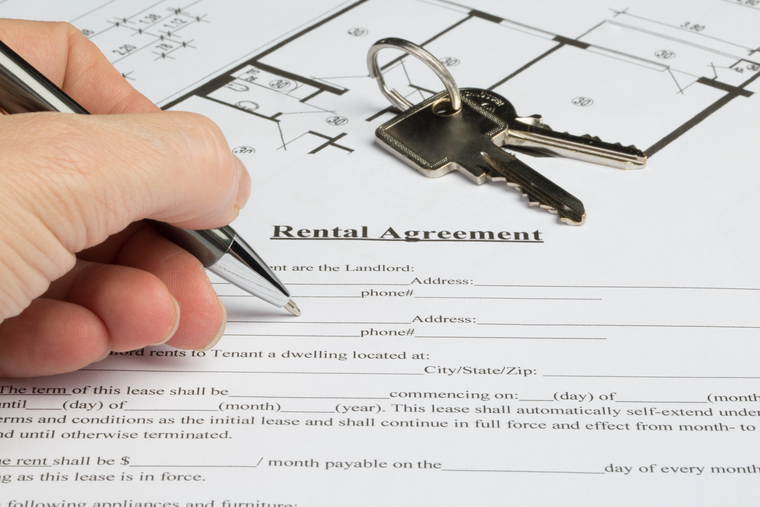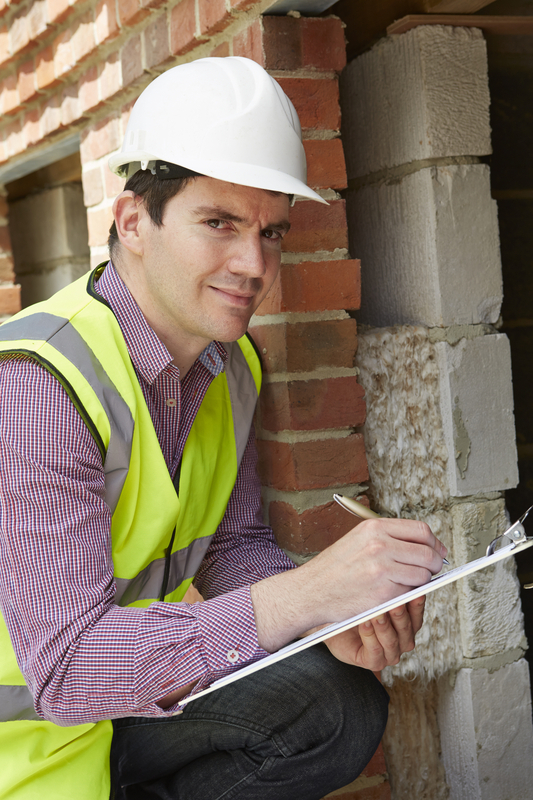Investing in Rental Property: The Risks, Rewards, and Benefits of Owning Rental Property


One area of the real estate market that is thriving right now is rental property.
All indications suggest that the rental market will continue to improve because of low vacancy rates and rising rents. In fact, the demand for rentals is predicted to far exceed supply through 2016, with 4.5 million new renters expected to enter the market in the next five years.
What to consider before buying a rental
Being a landlord has its challenges. The recession took a toll on rental prices for a few years and any future economic downturns could do the same. Once the job market returns to normal, there’s a strong possibility that more people will choose to move from rentals into homes of their own. And the demand for rental properties could become over saturated at some point, resulting in an investment bubble of its own.
What’s more, while the income from a rental property can be significant, it can take at least five years before you’re making much more than what you need just to cover the mortgage and expenses. In other words, the return on your investment doesn’t happen overnight.
However, in the long run, if you select the right property, it could turn out to be one of your best investment decisions ever—especially since rental real estate provides more tax benefits than almost any other investment.
Tax deductions for the taking
One of the greatest things about owning rental properties is the fact that you’re able to deduct so many of the associated expenses, including a sizeable portion of your monthly mortgage payment.
The commissions and fees paid to obtain your mortgage are not deductible, but the mortgage interest you pay each month is, including any money you pay into an escrow account to cover taxes and insurance. Whatever your mortgage company reports as interest on your 1098 form at the end of each year can likely be deducted.
For example, you may be eligible to deduct credit card interest for goods and services used in a rental activity, repairs made to the building, travel related to your rental (local or long distance), expenses related to home office or workshop devoted to your rental, the wages of anyone you hire to work on the building, damages to your rental property, associated insurance premiums, and fees you pay for legal and professional services. However, as is the case with any transaction of this type, be sure to consult your attorney or accountant for detailed tax information.
What to look for
As with any real estate investment, the location of the property and its overall condition are both key. But with rental properties, there are some other, unique factors you’ll also want to consider.
Utilities
Look for a building with separate utilities (water, electric, and gas, etc.) for each rental unit. This will make it far easier to legally charge for the fair use of what can be a very costly monthly expense.
Competition
If your property is one of the few rentals in the neighborhood, there will be less competition for interested renters.
Transportation
Rentals that are near popular public transportation options and/or major freeways (without being so close that noise is an issue) are usually easier to rent—and demand more money.
Landscaping
Properties with small yards and fewer plantings are far easier and less expensive to manage.
Off-street parking
Not only is off-street parking a desirable feature (people with nice cars usually don’t like to park on the street), it’s also a requirement for rental properties in some communities.
How to start your search
Unlike homes, rental properties do not typically have a visible ‘for-sale’ sign standing out front (as landlords don’t want to irritate, bring attention to their current renters, or turn off any prospective renters). Therefore, if you are interested in a rental property, your best option is to schedule an appointment with your real estate agent/broker to discuss your investment goals and identify what opportunities currently exist in the market place.
How the Neighborhood Impacts a Home’s Value


Whether you’re buying or selling, accurately pricing a home requires professional assistance from someone who knows the neighborhood.
The “estimated” home prices you see posted online can be off by tens of thousands of dollars—not because they are dishonest, but because the computer programs generating these guesstimates don’t take into account the current condition of a house, the amenities that are included, the qualities of the surrounding neighborhood, and so much more.
A real estate agent’s appraisal will not only consider the selling prices of surrounding properties, as the online services do, but also take into consideration a host of other criteria. For instance, when it comes to assessing the surrounding neighborhood, the following factors can often significantly affect the market price of a home:
School quality
The quality of neighborhood schools has a dramatic impact on home price, whether buyers have school-age children or not. In the most recent study on the subject, researchers from the Federal Reserve Bank of St. Louis found that above-average public schools (those with math scores 4.6 percent better than the average) increased the value of nearby homes by 11 percent (or an average of $16,000) in the St. Louis area.
A park within walking distance
Parks are so important to families today that simply having one within a quarter mile can increase the value of a house by 10 percent, according to a new study from the University of Pennsylvania’s Wharton School.
Stores nearby
The impact that retail areas have on home values depends on the type of community. According to a study recently released by the Massachusetts Institute of Technology, homes in urban areas sell for six percent to eight percent more than average if they’re within a quarter mile of a retail cluster (shops and restaurants). However, in suburban communities, it’s the homes that are a mile from any retail centers that sell for the most (homes located closer than that actually sell for eight percent less than average).
Freeway access
Because we’re a car-oriented society, most people are willing to pay more to live within a couple miles of an on-ramp to a major highway or freeway, which saves gas and speeds commute times. However, if the home is located too close (within a half mile of the freeway), the associated noise and air pollution can push the price in the opposite direction.
Vacant lots in the vicinity
Being surrounded by vacant land can be a good thing in rural areas, but it’s usually a negative for urban homeowners. A recent Wharton School study found that higher concentrations of unmanaged vacant lots in an urban neighborhood drag down the values for surrounding homes by an average of 18 percent.
Proximity to nuisances and environmental hazards
Two recent studies (one from an Arizona assessor’s office, the other by the University of California Berkeley) show that homes located near a landfill or power plant usually sell for four to 10 percent less than more distant homes. The same can usually be said for homes located too close to manufacturing facilities—especially those that make lots of noise or produces noxious odors.
Neighborhood foreclosures
According to a recent study by the Massachusetts Institute of Technology, the value of a home decreases by one percent for every foreclosed home within 250 feet of it. Why? The lower sales prices of foreclosed homes can quickly drag down the neighborhood’s comparable prices. Plus, the owners of these properties usually don’t have the money or interest in maintaining them after they go into foreclosure, which can create an eyesore for all the other homes in the vicinity.
Percentage of homeowners
Are there more owners than renters living in the neighborhood? If so, property values are usually better than average. Homeowners tend to take better care of their property than renters or landlords, which improves the curb-appeal for the whole community.
Public services
Some communities have a wealth of quality public services available to them—including regular street cleanings, scheduled street repair, graffiti removal services, landscape maintenance, neighborhood beautification efforts, and more. Needless to say, homes lucky enough to be located in those areas typically command higher property valuations.
Home sellers can use these factors to justify a higher asking price. Buyers can use them to try and negotiate something lower. However, when it comes to attaching specific dollar amounts, that is something best left to your real estate agent, an objective professional with a deep understanding of the local market.
Selling Your Home? Go Through This Safety Checklist With Your Real Estate Agent


Selling your home can be stressful for many reasons. Not only are you trying to get the best financial return on your investment, but you might also be working on a tight deadline. There’s also the pressure to keep your home clean and organized at all times for prospective buyers. One thing you can be sure of when selling your home is that there will be strangers entering your space, so it’s important for you and your agent to take certain safety precautions.
- Go through your medicine cabinets and remove all prescription medications.
- Remove or lock up precious belongings and personal information. You will want to store your jewelry, family heirlooms, and personal/financial information in a secure location to keep them from getting displaced or stolen.
- Remove family photos. We recommend removing your family photos during the staging process so potential buyers can see themselves living in the home. It’s also a good way to protect your privacy.
- Check your windows and doors for secure closings before and after showings. If someone is looking to get back into your home following a showing or an open house, they will look for weak locks or they might unlock a window or door.
- Consider extra security measures such as an alarm system or other monitoring tools like cameras.
- Don’t show your own home! If someone you don’t know walks up to your home asking for a showing, don’t let them in. You want to have an agent present to show your home at all times. Agents should have screening precautions to keep you and them safe from potential danger.
Talk to your agent about the following safety precautions:
- Do a walk-through with your agent to make sure you have identified everything that needs to be removed or secured, such as medications, belongings, and photos.
- Go over your agent’s screening process:
- Phone screening prior to showing the home
- Process for identifying and qualifying buyers for showings
- Their personal safety during showings and open houses
- Lock boxes to secure your keys for showings should be up to date. Electronic lock boxes actually track who has had access to your home.
- Work with your agent on an open house checklist:
- Do they collect contact information of everyone entering the home?
- Do they work with a partner to ensure their personal safety?
- Go through your home’s entrances and exits and share important household information so your agent can advise how to secure your property while it’s on the market.
Your safety, as well as that of your agent and your home, is of paramount importance when selling a property. For more information, visit:
http://www.mercurynews.com/los-gatos/ci_26509084/realtors-issue-safety-tips-folks-who-are-selling
How to Choose the Right Home


As the market starts heating up and real estate becomes a popular dinner party topic again, it’s easy to get so caught up in the fever of searching and offers that we forget why we were buying a home in the first place. When you’re hearing about “inventory shortages” and “bidding wars” it’s important not to fall into the trap of settling, buying for the wrong reasons, or even overspending.
When is the “Right Time to Buy”?
I constantly see information out there telling buyers and sellers that it is the “right time” or the “wrong time” to buy or sell a home. Of course you should take things like rising interest rates or rising or falling prices into consideration, but the most important thing to ask yourself is, “Is it the right time for me?” Are you ready to stay in one place for a while? Are you feeling like your employment position is stable? How about your relationship? If you’re barely making ends meet with a job you hate and your relationship with your partner is on the rocks, it’s probably not the time to buy, no matter what interest rates are doing. Having enough money to comfortably afford your home is more important than buying when everyone else is.
What are your values?
Why do you want to buy a house, anyways? Do you imagine yourself spending your weekends working in your yard every weekend? Is your idea of fun tearing apart a bathroom and putting it back together piece by piece? Or are you more interested in a lifestyle, living close to your work and walking to the grocery store? If you love going out with your friends or traveling for long periods, buying a house with extensive landscaping or an endless list of things needing to be remodeled and upgraded is probably not a good fit. Know what kind of life you want to live in your home BEFORE you find a place, and stay true to that as you search.
Find a REALTOR who gets you.
When you’re looking for an agent to help you find a home, keep looking till you find someone you like and trust. Buying a home can be hugely stressful, and being able to have open and honest conversations with an agent who gets you will make the whole process much easier.
Everyone is happy that the real estate market is in recovery and buying a house is an amazing experience. Just make sure you know what you want your home to be FOR YOU and stay true to your own personal American Dream.
 Marguerite Giguere is a buyers agent specializing in Downtown Tacoma. She blogs regularly at GetRealTacoma.com.
Marguerite Giguere is a buyers agent specializing in Downtown Tacoma. She blogs regularly at GetRealTacoma.com.
Selling your home: A step-by-step approach


Whether you’re starting a family, moving for your job, getting ready to retire or embarking on a new chapter in your life, when your home no longer suits your current situation, it’s time to think about selling it. Although this can be a bit complicated, with the help of your agent, you can minimize the hassles, get the best possible price, and shorten the distance between “For Sale” and “Sold”.
Price it right
If you want to get the best possible price for your home and minimize the time it stays on market, you need to price it correctly from the beginning. Your agent can give you a clear picture of your particular market and can provide you with a comparative market analysis (CMA). A CMA contains detailed information on comparable homes in your area, including square footage, date built, number of bedrooms, lot size and more. It lists pending sales and houses sold in your area in the past six months, along with their actual sale prices.
By comparing your home to similar homes in your neighborhood and reviewing their list prices and actual selling prices, your agent can help you arrive at a fact-based assessment of your home’s market price.
Prepping your house for sale
You want to make a positive first impression when you list your home for sale. Here are some tips on how to enhance your home’s best features:
Work on your curb appeal
Get rid of moss on your roof. Power wash your front walk, porch, deck and patio. Mow the lawn, trim the hedges, weed the flowerbeds and add spots of color with container plants. Clean all the windows inside and out and repair them if they don’t open and close easily.
Refresh, repair and repaint
This goes for interiors and exteriors. If you see peeling paint, add a fresh coat. If your living room is bright lime green, consider painting it a more neutral shade. Make necessary repairs. You don’t want to turn off a buyer with a dripping faucet, a broken doorbell, a clogged downspout or a cracked windowpane.
Deep-clean, from floor to ceiling
Clean rugs, drapes and blinds and steam-clean carpeting. Get rid of any stains or odors. Make sure kitchen appliances, cupboards and counters are spotless and that bathrooms shine.
Declutter and depersonalize
Clean, light-filled, expansive rooms sell houses. So be sure to downsize clutter everywhere in your home, including cupboards, closets and counters. You might also consider storing some furniture or personal items to make rooms look more spacious. Take advantage of views and natural light by keeping drapes and blinds open.
Make an impact on the market
If you want to sell your home, you need to go where the buyers are, and today they’re on the Internet. According to the National Association of REALTORS®, in 2012 90 percent of homebuyers used the Internet as an information source, and for 41 percent of homebuyers it was the first step in the home-buying process.
By working with your agent, you can list your home on Windermere.com and other relevant websites. He or she will put together a listing with attractive photos, an appealing description and all the information a potential buyer needs. Your agent will also market your house, which may include advertising, direct mail and open houses.
Show your house
After you’ve taken care of all the repairs and cleaning tasks outlined above, your home is ready for its close-up: an open house. It’s actually best for you and your family to leave when potential buyers are present so they can ask your agent questions. But before you go, you might want to:
· Take your pets with you
· Open the shades and turn on the lights
· Light a fire in the gas fireplace
· Bake cookies
· Keep money, valuables and prescription drugs out of sight
Be flexible in negotiating
If you get offers below your asking price, there are a number of strategies you can try in your counteroffer. You could ask for full price and throw in major appliances that were not originally included in the asking price, offer to pay some of the buyer’s fees, or pay for the inspection. You could also counter with a lower price and not include the appliances. If you receive multiple offers, you can simply make a full-price counter.
Your agent can suggest other strategies as well and help you negotiate the final price.
If your house doesn’t sell or you’ve received only low-ball offers, ask your agent to find out what these prospective buyers are saying about your house. It might reveal something you can consider changing to make your house more appealing in the future.
Breeze through your inspection
When a buyer makes an offer on your home, it’s usually contingent on a professional inspection. A standard inspection includes heating and cooling, interior plumbing and electrical systems; the roof, attic and visible insulation; walls, ceilings, floors, windows and doors; and the foundation, basement and visible structure. The inspector will be looking for cracks in cement walls, water stains and wood rot.
You can always opt for having an inspection done prior to putting your house on the market, so you can address any potential problems in advance. Your agent can give you several recommendations for qualified inspectors in your area.
Close with confidence
Whether this is your first time or your tenth, your agent can help guide you though the complex process of selling a home. Moreover, he or she can answer any questions you may have about legal documents, settlement costs and the status of your sale.
Your agent’s expertise, resources and extensive network also work for you when you’re buying your next house. Even if you’re moving out of the area, your agent can refer you to a professional agent in your new community.
If you have questions about the buying or selling process, or are looking for an agent in your area, we have professionals that can help you. Contact us here.
Does the Home of Your Dreams Really Exist?

 Agent: “So, what kind of a house are you looking for?”
Agent: “So, what kind of a house are you looking for?”
Client: “Anything with 3 bedrooms and a couple baths. Oh, and a big yard would be cool, too.”
Agent: “I know of several that we can show you.”
Client: “Just pick three that you think I’ll like, and I’ll buy one of them.”
If only it were that easy. When you ask yourself to visualize the home of your dreams, what comes to mind? Certainly not a nondescript 3 bedroom, 2 bath home. It’s much more likely that your vision could include features like maple flooring, granite counter-tops, 6-panel doors, built-in speakers, or access to 220-electricity in the garage for a workshop. Everyone has their own custom needs and desires.
You’re allowed to be picky. Realistic is imperative, but picky is fine, too. If you’re holding out for diamond insets in the shower tile grout or solid gold door knobs, I’m afraid disappoint awaits you. Think about the most important things a home will represent to you. Do you work from home? Do you entertain large groups regularly? Do you enjoy yard work or do-it-yourself projects? Each family has their own needs, so your definition of the perfect home will be very different from even your closest friends or family members.
Not only does each family have their own needs, but each family member might have their own needs. Pets come into the picture, too. Is high-enough speed internet readily available? Is there a wall that will fit your 60” High-Def 3D TV? Will the family room have enough space that you can compete at Wii™ or Kinect™ without breaking lamps? Will the huge trees that are cooling in summer make the home darker than you like in the winter? Can you bike or run the neighborhood streets? Are you concerned about how your energy consumption will affect the environment? You’re encouraged to list all the things that are important to you.
Once you’ve made your list, prioritize it according to what is important. Figure out what’s a must-have and what would be nice, but not necessary. It might take looking at a few homes to figure out what you want versus what you need. You may love the idea of having Spanish copper sinks throughout the house, but if there were no houses on the market that had them, would you resign yourself to renting indefinitely? On the other hand, you may be working from home and need fantastic data transmission capability. You probably wouldn’t want to look in a rural area that still uses dial up, but promises to have high speed internet cables in the future.
Your agent will learn from your prioritized list, and they should be able to help you find that perfect house. Be brutally honest with yourself, think 10 years into the future, and share your desires freely with those that can help you. You may not find the house that’s 100% of what you wanted, but something very close to the home of your dreams is probably out there.
What are the “deal killers”? What are the most important features on your list?
 By Eric Johnson, Director of Education
By Eric Johnson, Director of Education
Johnson has several years experience as a real estate agent and real estate instructor, as well as experience in construction project management, digital media/publishing and insurance. He has a bachelor’s degree in anthropology from University of Colorado.
Find your real estate agent
You have many tough choices to make as you start looking for the home of your dreams and prepare to make one of the largest financial decisions of your life. Finding the right agent to represent you shouldn’t add to your worries. I’ve met a few real estate agents over the years and here are 5 tips to help you find a great one.
- Ask your friends and neighbors. Most consumers find their agents through referrals from those close to them. You’ll get real world references (good and bad) from the people you trust.
- Search your online networks. Search for real estate agents within your professional network on LinkedIn.com. LinkedIn can show you the agents who are 2nd and 3rd degree connections within your network. LinkedIn will even show you the agent’s resume and recommendations, mutual connections and offer to introduce you.
- Search local listings. Spend some time looking at homes similar to the one you wish to purchase or plan to sell on your favorite real estate website. Which agents are posting the best photos and doing the best to represent homes through their marketing efforts? Which agents are the most active in the area?
- Search Yelp. Yelp.com started as a place where people could write reviews and rate restaurants and bars. Today, Yelp has become the one-stop site for reviews of local businesses and professionals. Take a look at the highest rated agents in your area and read what your neighbors have to say about their service.
- When in doubt, Google it. When you’ve narrowed your search down to a list of possible agents start typing their names into Google. Google is a quick and easy way to see how active an agent is in the online world. If your agent has a common name include location or company search terms as well. You’ll be able to see any blogging or community activities they are involved in. You will also be able to see how active they are on real estate sites like Zillow and Trulia. Working with an agent who is active online, benefits you because they are more likely to have larger networks and a greater reach with marketing efforts.
 Facebook
Facebook
 Twitter
Twitter
 Pinterest
Pinterest
 Copy Link
Copy Link





